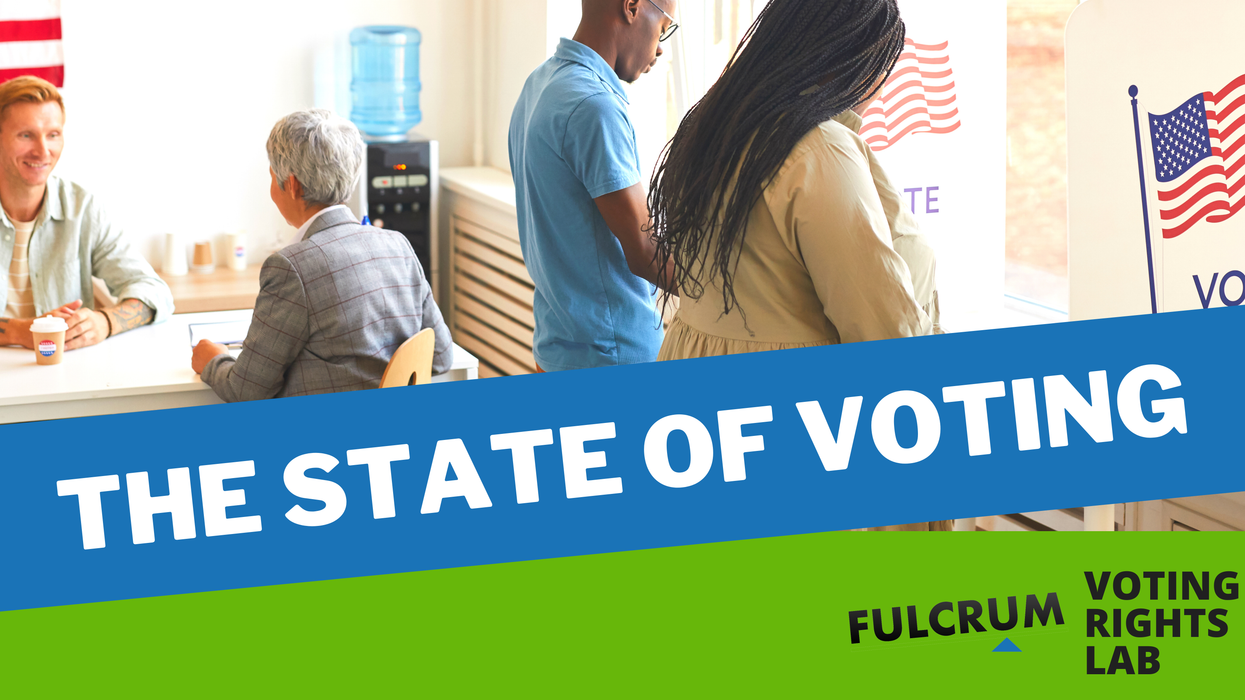This weekly update summarizing legislative activity affecting voting and elections is powered by the Voting Rights Lab. Sign up for VRL’s weekly newsletter here.
The Voting Rights Lab is tracking 2,195 bills so far this session, with 581 bills that tighten voter access or election administration and 1,048 bills that expand the rules. The rest are neutral or mixed or unclear in their impact.
With little legislative activity over the summer, much of the focus now is on executive action by state agencies. The highlights last week occurred in Wisconsin (where the Elections Commission reactivated thousands of voters’ registrations) and Iowa (where the secretary of state announced grants to improve accessibility in and around polling places.)
Looking ahead: The Voting Rights Lab is watching a number of state court cases that are moving, including two new lawsuits challenging Arizona’s new proof of citizenship requirement and an open question of whether North Carolina’s legislature had the authority to refer a voter ID amendment to voters.
Here are the details:
The Wisconsin Elections Commission reactivates more than 30,000 voters’ registration. In 2021, the League of Women Voters of Wisconsin filed a federal lawsuit alleging that the WEC unconstitutionally purged tens of thousands of voters from the rolls when it failed to give voters notice of, and opportunity to avoid, deactivation in July of that year. On August 12, the WEC reactivated the registrations of 30,554 voters in accordance with a stipulation filed by the parties last month. The stipulation also requires the WEC to notify voters facing deactivation before removing them from the rolls, providing them with the opportunity to take any necessary action to avoid deactivation if they so choose.
The North Carolina Supreme Court limits the authority of the state’s racially gerrymandered legislature. In 2017, the U.S. Supreme Court conclusively determined that 28 legislative districts in North Carolina were drawn in a manner that violated the equal protection clause of the U.S. Constitution. Separately, in 2018, the General Assembly enacted legislation to put an amendment on the ballot that would create stricter state voter ID requirements. Last week, the North Carolina Supreme Court ruled that because the 2018 legislature was composed of a substantial number of legislators from districts that had been unconstitutionally racially gerrymandered, it lacked complete authority to refer the amendment to voters. The state Supreme Court remanded the ongoing litigation over the voter ID amendment back to the trial court for consideration of additional questions.
Iowa counties receive funds to improve access for voters with disabilities. Secretary of State Paul Pate announced that his office will make $1,000 grants available to each of the state’s 99 counties to fund improvements to polling place accessibility for voters with disabilities. Nearly 300,000 Iowans have a disability. Iowa counties may use the additional funding directly on accessibility infrastructure or to provide training on how to better meet the needs of voters with disabilities.
Lawsuits challenge Arizona’s new proof of citizenship requirement. On Tuesday, the Arizona Asian American, Native Hawaiian, and Pacific Islander for Equity Coalition filed a lawsuit challenging two newly enacted bills, H.B. 2492 and H.B. 2243, for requiring voters to provide documentary proof of citizenship – and allowing county recorders to cancel a voter’s registration if that proof is unavailable or if there is suspicion that the voter is not a U.S. citizen. Last Monday, the Democratic National Committee and Arizona Democratic Party filed a separate lawsuit challenging H.B. 2492, which was promptly consolidated with other litigation. The plaintiffs in the other new suit have moved to similarly consolidate their case with ongoing litigation.





















